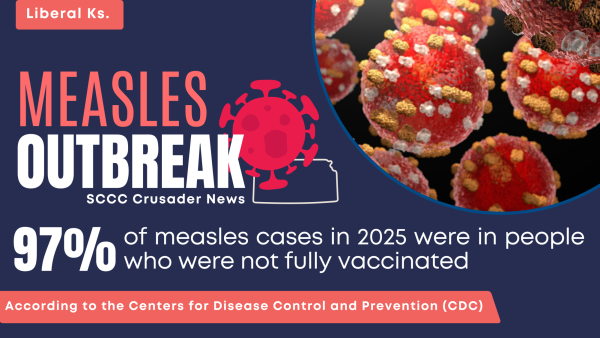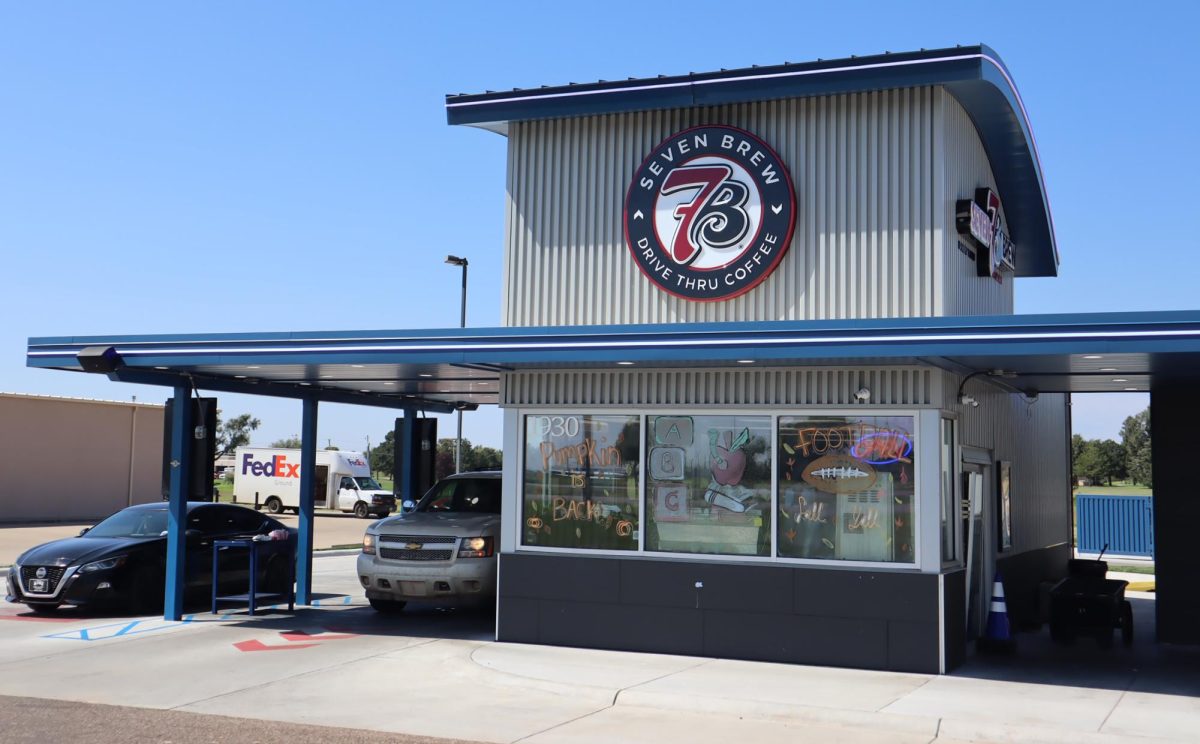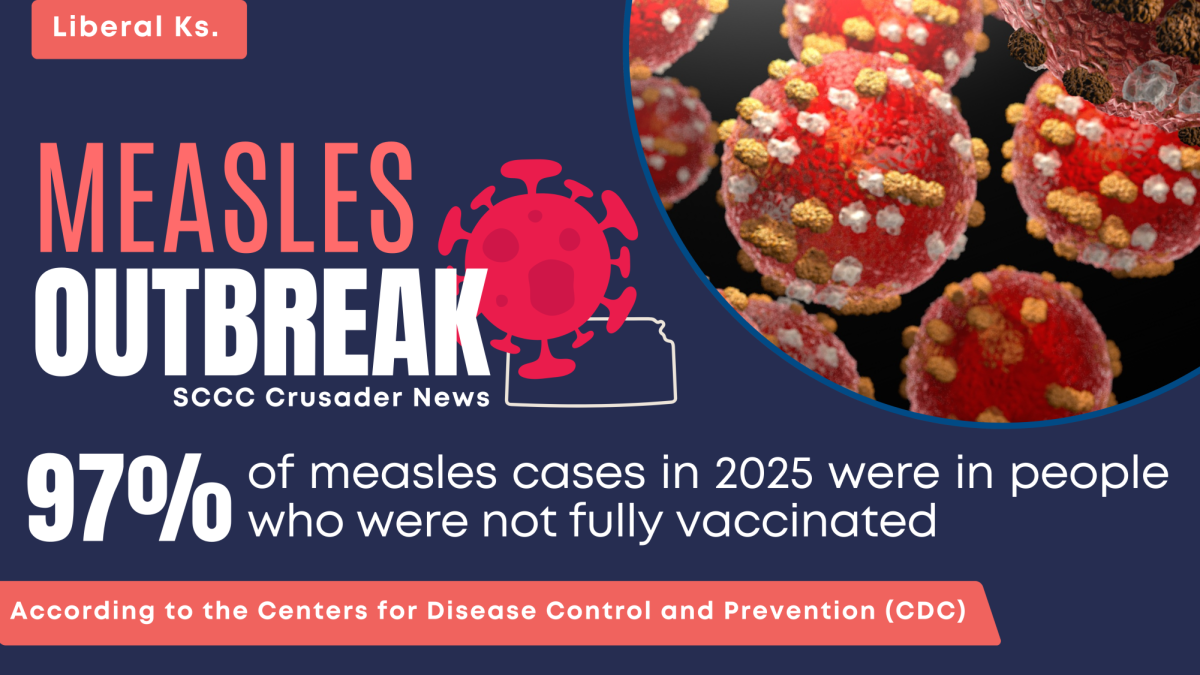 According to the Centers for Disease Control and Prevention (CDC), measles spreads easily through the air when an infected person coughs or sneezes, allowing the infection to spread over a long period of time throughout a group or community of people.
According to the Centers for Disease Control and Prevention (CDC), measles spreads easily through the air when an infected person coughs or sneezes, allowing the infection to spread over a long period of time throughout a group or community of people.
People who are not vaccinated with the measles, mumps, and rubella (MMR) vaccine are more likely to get seriously sick. Complications from infection include pneumonia, brain swelling, or even death.
When in contact with someone who has measles, according to the CDC, symptoms usually include a high fever, cough, runny nose, red eyes, and a rash that starts on the face and spreads.
“Mostly in the children who didn’t have their MMR vaccines get measles,” nursing major Jackie Cortes said. “Older people are prone to getting it… Those who also didn’t have their MMR vaccines, but if you had your vaccines, you are less prone to getting measles.”
The MMR vaccine protects against three highly contagious viral diseases: Measles, mumps and rubella. Two doses of the vaccine are given. The first dose is given at the age of 12 to 15 months, and the second dose is usually given around the age of four to six years old.
There are ways to combat the outbreak, with even simple regulations throughout the community. One such organization would be Mosaic, which supports individuals with intellectual disabilities by providing essential services for their health and a higher quality of life. Mosaic and others are taking steps to potentially protect the people they serve.
“We haven’t had anyone with symptoms or diagnosis,” said Janeth Trevizo, Kansas State Operations Director of Mosaic. “However once we heard about the outbreak we provided more education on what signs to look for etc.”
If someone becomes infected or comes into contact with a person with measles, there are specific protocols to follow at Mosaic. According to Trevizo, she says, “Yes, we have guidance from our national office to… closely follow CDC guidelines, such as but limited to quarantine guidelines, watch for symptoms ect.”
Once an outbreak occurs, there are ways to combat it. In response to the recent measles outbreak, Seward County has implemented a specific protocol to help contain the spread of the virus. Individuals with symptoms of measles are being directed to the Seward County Health Department for further evaluation.
“Directing individuals to a centralized location like the health department creates a more controlled environment and reduces the potential for further spreading of measles on campus, so they can record all the cases,” Cortes explained.
Cortes, who works at Mariana Lucero MD Chartered, a pediatrics office, says “We were made aware of the symptoms and if we came in contact with people exposed to take proper precautions at work.”
Cortes also says that, for those who seek medical evaluation for their children, Dr. Lucero gives evaluations to children with measles symptoms.
If you are exhibiting signs of measles, make way to the Seward County Health Department for evaluation. According to CDC guidelines, receiving care focuses on relieving symptoms, preventing complications, and isolating the infected person to avoid spreading the virus.
To receive the MMR Vaccine head to your local pharmacies. Liberal Ks. pharmacies include Walgreens, Dillons, and El Kan Drug. Call ahead of time and make an appointment.
Stay informed and protected; stopping the spread of measles starts with you.
For more information, refer to the following sources:
Sources: Measles is making a comeback: Can we stop it? – Harvard Health














![The sophomores were recognized on the field instead of walking across the stage during their doubleheader. They received their diplomas and a picture of themselves playing during their career at Seward. [Pictured left to right are Dylan Day, Reed Thomas, Jase Schneider, Mason Martinez, Gannon Hardin, Brody Boisvert, and Zach Walker]](https://crusadernews.com/wp-content/uploads/2022/05/WEBDSC_0275-900x454.jpg)




























































